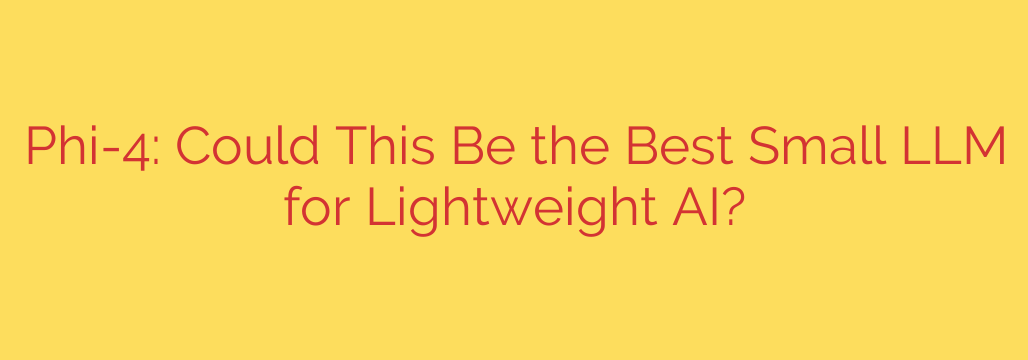
The landscape of artificial intelligence is rapidly evolving, with a growing focus on making powerful capabilities more accessible and less resource-intensive. While massive language models often capture headlines, there’s significant innovation happening in developing smaller, more efficient models. These compact AI systems are crucial for broadening the applications of generative AI beyond cloud data centers.
One notable development in this area is a recent model from Microsoft Research, specifically designed to be remarkably small yet surprisingly capable. This model, often discussed as a key player in the lightweight AI space, demonstrates that significant performance can be achieved without requiring immense computational resources or vast amounts of data for deployment.
Its primary advantage lies in its efficiency. Being a small LLM, it can run on less powerful hardware, opening up possibilities for local deployment on devices like smartphones, laptops, and even embedded systems or edge devices. This capability is transformative, enabling applications where constant cloud connectivity might be impractical or where data privacy is a major concern. Think of personal AI assistants running directly on your device or industrial applications performing analysis at the source of data generation.
Despite its reduced size compared to multi-billion parameter models, this model has shown impressive results on various benchmarks, indicating a high level of understanding and generation quality relative to its computational footprint. This suggests it’s not just a smaller model, but a highly optimized one, leveraging smart architectures and training methodologies.
The implications are significant for developers and businesses. It lowers the barrier to entry for deploying generative AI, reducing costs associated with inference and potentially improving response times as data doesn’t always need to travel to the cloud. This focus on efficiency and local AI is a critical step towards making sophisticated AI technology more ubiquitous and integrated into everyday life and specialized applications.
While it may not match the absolute cutting-edge performance of the largest models on every single complex task, its strength lies in providing powerful AI capabilities where resources are constrained. It represents a vital trend towards practical, deployable, and cost-effective artificial intelligence solutions. This model is a strong contender for being a premier choice when seeking robust lightweight AI capabilities without the overhead of much larger systems.
Source: https://www.horizoniq.com/blog/phi-4/








